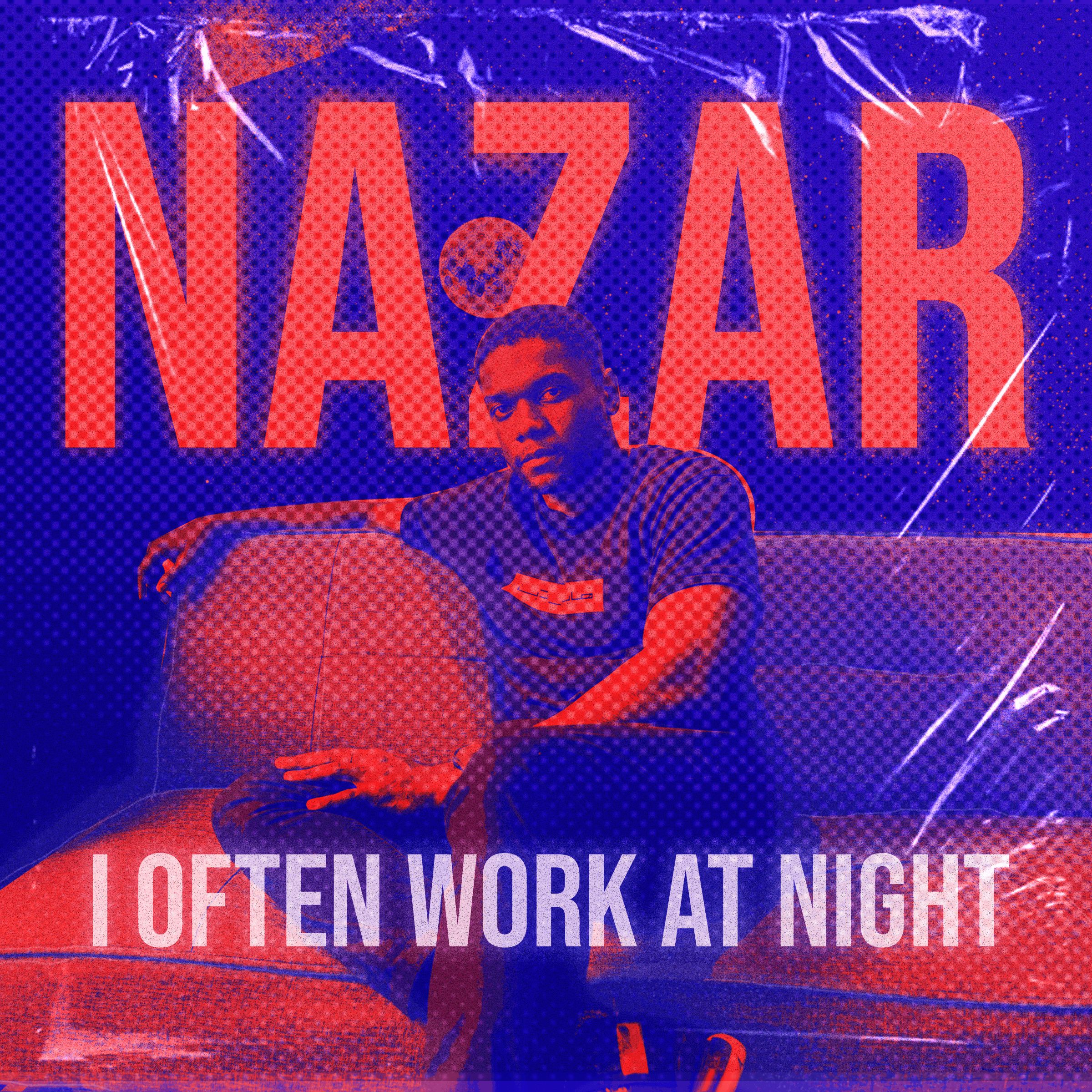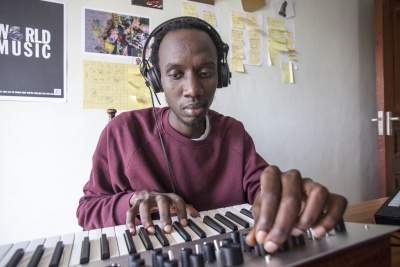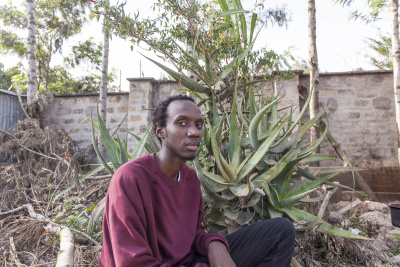I Often Work at Night
Angolan producer Nazar grew up in Belgium, spent his teens in Angola, and is now based in the UK. In this interview, he tells us how he translates episodes from his biography into his music. He talks about war, anger, discrimination, and loneliness, his father’s political activism and war diary, and mental health issues within the music community. An experimental podcast full of samples from his 2020 album Guerrilla and snippets from the interview, conducted in London.
A Podcast by Thomas Burkhalter and Daniel Jakob
Quotes from the Podcast
#anger
«With the medium of music I let it all out. As violent as I can: feeling attacked, feeling not welcome, feeling that I don’t have a place where I actually feel at home. That kind of things translate into my music. Anger, but controlled, and rational. I always stay rational. I never truly incite to violence.»
#dad
«The album ['Guerrilla']is very biographical, but it has two main central points: me and my dad. Because he’s a very prominent figure in my life obviously. Because of his presence and also because of his absence, basically half of my life I lived without seeing him.»
#biographical
«I got the chance to have an extraordinary story I guess in terms of my family and where they came from and where they are right now. I took those histories and I put them in episodes.»
#identity
«I feel African before everything else. When I went to Angola for the first time I truly felt home. I truly felt like you are not just a black kid there.»
#war
«There is a track called 'Bunker' (…). It talks about what happened in 1992 when the war restarted in Angola after the elections. The regime saw the elections as an opportunity to attack the opposition, because all the main leaders of the opposition were in town. My family also was in town, so it was very intense, like a hunt basically. Part of my family survived because they were hiding in hotels where the foreign journalists stayed.»
#peace
«The first fifteen years after peace are the most crucial ones to decide if we are going back to war or not.»
#internet
«It’s bad when the only thing you can rely on is what you get from the internet. It gives you a fake perception of the world, I guess.»
#producing
«I work on a track, work on a track, and then it’s always around seven to eight hours that I get up, 'whoa', and I do a this signature move which is me screaming, 'yeah'.»
#loneliness
«It’s extremely lonely but I’ve always been like a solitary type of guy, so I’ve never actually minded too much this.»
Further Releases by Nazar
Biography
Biography
Links
Published on January 04, 2021
Last updated on April 14, 2021
Topics
Loneliness can feel like isolation, but can also be a positive solitude by keeping distance from the worlds’ chaos.
Does the global appropriation of kuduro exploit or reshape the identity of Angolans? How are «local» music genres like guayla sustained outside of Eritrea?
What happens, when artists move from one to another country? For example, when an Arab artist replaces the big tractors in her the village with big jeeps of the West.
How does Syrian death metal sound in the midst of the civil war? Where is the border between political aesthetization and inappropriate exploitation of death?
Snap


